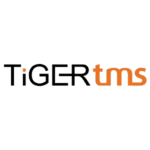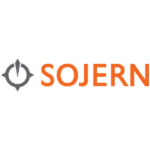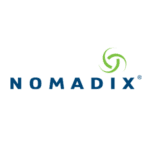 Any and every form of guest interaction with your hotel can be invaluable for guiding the future of your brand, but only if you are properly digitizing and tabulating all these forms of communication.
Any and every form of guest interaction with your hotel can be invaluable for guiding the future of your brand, but only if you are properly digitizing and tabulating all these forms of communication.
The two of us are believers of the ‘silent majority’ whereby for every question posed to your hotel, there are ten other customers who had the same question but elected not to bring it to your attention, either because they were too busy, didn’t want to bother you or perhaps felt embarrassed asking.
Automation and operational inferences
Whatever the reason, something as simple as, “What time is your pool open?” indicates the clear need for chatbots to expediently answer these repetitive questions in such a labor-tight hospitality world. But think again and you will discover that such inquiries also may inform website, OTA or social media updates to make this information more visible. Then, with the proper follow-up, you may even discover that maybe guests are asking because there’s high demand for extended hours, thus necessitating a rethink of your hours of operation as means of driving guest satisfaction.
Thus, questions and comments received both before a guest books with you (pre-booking) and before they arrive (prearrival) serve as a part of a virtuous circle for operational improvements. Automating where possible with AI, having good answers can mean more reservations secured (pre-booking), more successful upselling (prearrival), a better onsite stay and enhanced loyalty (post-departure).
Especially with the giant question mark that is this next phase of post-pandemic travel normalization, you need to make data-informed decisions as to where to put budget towards new initiatives. Quantifying guest feedback thus becomes insurmountable, especially with modern platforms that are able to interpret unstructured responses – those that aren’t columned off into multiple choice answers which, by their very nature, elicit biased answers. Give guests the floor then observe what they say.
Looking at the aggregated data
To get a sense of how you can use pre-stay and unstructured responses to improve operations, we worked with Bruno Saragat, a product specialist at ReviewPro, a Shiji Group brand, to look at aggregated data from over 650 properties using their AI-driven Hotel Chatbot system.
This macro-level tabulation also involves ‘semantic analysis’ whereby the system is able to evaluate guests’ text-based comments to interpret then quantify their meaning. What we looked at was the ‘volume of conversation’ numbers concerning specific topics brought up by guests during prebooking and prearrival then tagged by the system to categorize them.
Our hope is that you find both these data-based observations and our interpretation of what may be implied for operational enhancements to be useful.
-
Reservation doubts:
- By far the biggest category of questions posed by customers pertained to online booking issues, prepayment or problems with the reservation process in general.
- Hotel brands should thus pay extra attention to making their messaging crystal clear on every prebooking channel, be it the website, an OTA or within a standardized response within a live chat.
- As well, if a particular error is found to be commonly cited by guests, this can indicate an immediate upgrade to the booking engine or website to make the reservation process more frictionless in order to avoid abandonment.
-
Property and guestroom facilities:
- Questions about what was available onsite and in the room represented the penultimate inquiry for the prebooking stage and the third-most for the prearrival stage.
- In both cases, quick answers can be make or break for securing the booking or incremental pre-stay revenues from guests.
- Much like reservation doubts, if your own data indicates specific amenities or facilities as frequently asked about, this may also mean they aren’t visible enough on the front-end website or another marketing channel.
-
Parking and transportation services:
- Interestingly, this came in third at the prebooking stage but not in the top ten for prearrival, encompassing airport pickups or drop-offs, directions, car rentals, taxi services, parking location and valet services.
- What we gather from this is that many guests prioritize the logistics of getting to a property into their booking decision.
- Moreover, this finding may also suggest the setup of various transportation services as a paid add-on (run internally or through a partner) as well as the perceived value of bundling parking in packages or blasting the word ‘free’ if you offer any services complimentary to visitors.
-
Pet policy, check-in and check-out:
- Coming in as the fourth, fifth and sixth most frequent for the prearrival stage, it’s clear from this that seemingly basic questions like, “When’s check-in?” are still very much top of mind.
- But there’s also an opportunity here where you can use the semantic data to help sell add-ons. For example, if a high number of guests are indicating a preference for a late check-out, then maybe it’s time to package this service or offer it as an automated upsell prompt whenever a guest requests it or even asks what the standard check-out time is.
- As for pets, if you’re getting lots of inquiries related to bringing dogs into the rooms, this data can support the move to carve a section of the hotel as a pet-friendly room category (and charging an additional cleaning fee).
-
Nearby places:
- As another intriguing inference, questions about area attractions and what’s in the immediate vicinity came in second for the prearrival stage only slightly behind guests asking about the cancellation policy.
- Similar to our suggestion about all things transportation, popular inquiries here can indicate modifications to your front-end website and onsite (be it an in-room tablet or other display screen) messaging about what to do nearby as well as the setup of experiential packages or new partnerships with neighborhood vendors.
- Knowing that this is a popular question for prearrival but not necessarily for prebooking can also indicate that most guests aren’t mentally ready to consider filling out their day plans right at the time of booking and too much information at this prebooking stage may lead to reservation abandonment.
All interactions can drive revenues
As you see from some of the inferences derived from the data supplied by ReviewPro, there are ways to use any aggregation of your guest interactions to improve operations, which will undoubtedly spill over into heightened satisfaction and the ability to grow nightly rates.
It’s not just about the immediate service implications of speedily answering questions, but meditating on why they are asking in the first place. For instance, if lots of customers are asking about valet, perhaps it’s time to set this up and charge for it (as an add-on or bundled). Or, if the data shows that incoming travelers are keenly focused on visiting one particular nearby site, building a value-added package around this attraction will surely be well-received.
In our opinion, revenues are built one interaction and one guest inquiry at a time. Please don’t let these opportunities for improvement go to waste!
This article may not be reproduced without the expressed permission of the author.




























